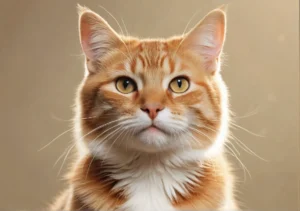Old cats pooping everywhere can be a frustrating issue for many pet owners. Understanding the reasons behind this behavior is crucial in order to find solutions and maintain a harmonious living environment with your furry friend.
Why Do Old Cats Poop Everywhere?
Old cats may poop outside of their litter box due to a variety of reasons, ranging from medical issues to behavioral changes. By diving into the potential causes behind this behavior, you can better address the problem and provide the necessary care for your aging feline companion.
Changes in Litter Box Preferences
As cats age, they may experience changes in their litter box preferences that can lead to inappropriate elimination. Changes in the litter box environment such as using a new type of litter or moving the box to a different location can be unsettling for older cats. Imagine if someone suddenly switched your regular toilet for a brand new one without warning – you might feel a bit out of sorts too!
To help your senior feline friend adjust, keep the litter box in a quiet, easily accessible location. Cats, especially older ones, prefer privacy when doing their business. Additionally, stick to the same type of litter that your cat is used to. Abrupt changes in texture or scent may cause your cat to seek alternative potty spots.
If your cat continues to have accidents despite these adjustments, it may be time to consult your vet. Remember, cats are creatures of habit, and any disruptions to their routine can result in unwanted bathroom behavior.
Medical Issues
When it comes to senior cats, medical issues can play a significant role in their bathroom habits. Conditions such as arthritis can make it painful for your cat to posture properly in the litter box, leading them to seek more comfortable places to relieve themselves. Just imagine trying to squat if your knees were aching – not very appealing, right?
In addition to physical ailments, digestive problems can also cause your cat to poop outside of their litter box. If your cat is experiencing frequent diarrhea or constipation, they may associate the litter box with discomfort and choose alternative areas to go.
Lastly, cognitive dysfunction, similar to Alzheimer’s in humans, can affect an older cat’s ability to remember their litter box training. This can result in confusion and accidents throughout the house. If you suspect your cat is suffering from cognitive decline, consult your vet for appropriate management strategies.
Remember that addressing medical issues promptly is crucial for your cat’s well-being. A trip to the vet can help identify and treat any underlying conditions contributing to your senior cat’s messy bathroom habits.
Stress and Anxiety
Older cats may poop everywhere due to stress and anxiety. Just like humans, cats can experience stress from various factors like changes in their routine, environment, or even new additions to the household. This can lead to litter box issues as your feline friend may not feel comfortable or safe enough to use their designated bathroom area.
To help your older cat cope with stress and anxiety, try to maintain a consistent routine, provide plenty of hiding spots or safe spaces, and consider using pheromone diffusers to create a calming environment for your furry companion. Additionally, spending quality time with your cat through play and cuddle sessions can also help alleviate their stress levels and reduce accidents around the house.
Lack of Mobility
Another reason why old cats may poop everywhere is lack of mobility. As cats age, they may develop arthritis or other mobility issues that make it challenging for them to access their litter box easily. This can result in accidents as your cat may struggle to make it to their bathroom area in time.
To address this issue, consider providing a litter box with lower sides that are easier for your senior cat to enter and exit. You can also place additional litter boxes in various locations around the house to ensure easy access for your furry friend. In severe cases, consulting with your veterinarian about pain management options or physical therapy for your cat’s mobility issues can also be beneficial.
Extra tip: Regular veterinary check-ups for your older cat can help identify any potential mobility issues early on and allow for appropriate intervention to improve their quality of life.
Cognitive Decline
As our beloved feline friends age, they may experience cognitive decline, much like humans. This decline can impact their memory and ability to navigate familiar spaces, including finding their litter box. Senior cats might struggle to remember where the box is located or how to use it properly, leading to accidents outside the designated area. To help your old cat cope with these challenges, consider providing multiple litter boxes in easily accessible locations throughout your home. Additionally, creating a predictable routine for feeding, playtime, and litter box use can help alleviate confusion and reduce accidents.
Inappropriate Elimination
Understanding the difference between inappropriate elimination and marking behavior is crucial for addressing your cat’s pooping habits. Inappropriate elimination occurs when a senior cat consistently goes outside the litter box without a discernible cause, such as health issues or stress. On the other hand, marking behavior involves a cat depositing small amounts of urine or feces in specific areas to claim territory. Determining the root cause of your cat’s behavior is essential in implementing effective solutions. If your senior cat is struggling with inappropriate elimination, consult your veterinarian to rule out any underlying health issues and explore behavioral modifications, such as using pheromone diffusers or offering additional litter boxes.
Extra tip: Consider using litter box attractants to encourage your senior cat to use the litter box consistently. These products can help guide your cat to the appropriate elimination area and reinforce positive bathroom habits.
Creating a Comfortable Environment
Old age can be tough on our feline friends, leading them to poop outside the litter box. So, make sure to keep the litter box easily accessible in quiet, low-traffic areas. Avoid sudden changes in the litter brand or type, as consistency is key for older cats. Use unscented litter since elderly cats may be sensitive to strong smells. Additionally, provide multiple litter boxes in different areas of the house to give your senior cat options. Remember, a comfortable environment is essential for promoting healthy litter box habits in older cats.
Seeking Veterinary Care
If your aging cat is consistently pooping outside the litter box, it’s time to schedule a visit to the vet. Underlying medical issues such as arthritis, kidney disease, or cognitive decline could be the culprits. A vet will conduct a thorough examination and run tests to diagnose any health problems. Early intervention is crucial in managing these conditions and helping your older cat feel better. Remember, seeking veterinary care promptly can improve your senior cat’s bathroom habits and overall well-being.
Unique Insight: Monitoring your senior cat’s litter box habits can provide valuable clues about their health. Keep an eye out for changes in frequency, consistency, or color of their poop. Any sudden alterations could signal a medical issue that requires prompt attention from a veterinarian.
Alex, a passionate animal lover, has experience in training and understanding animal behavior. As a proud pet parent to two dogs and three cats, he founded AnimalReport.net to share insights from animal experts and expand his knowledge of the animal kingdom.




